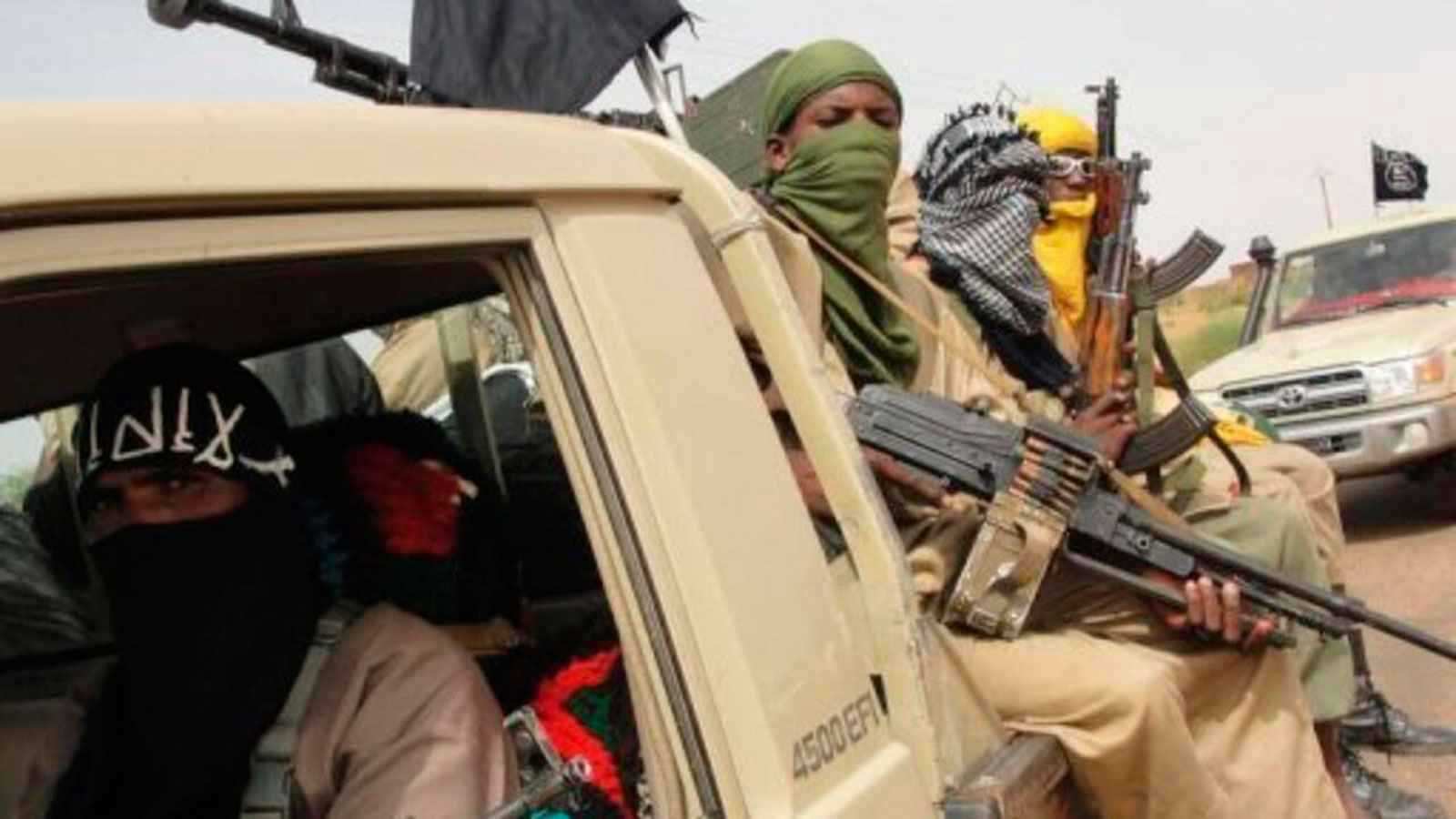A new strategy by extremist groups in Mali involves imposing an economic blockade on the capital, Bamako, marking a significant shift in a conflict that has persisted for over a decade. The group known as Jamaat Nusrat al-Islam wal-Muslimin (JNIM) has enforced an unprecedented restriction on fuel supplies, targeting key transportation corridors in western and southwestern regions—areas previously less affected by militant violence. n nOn July 1st, insurgents launched an attack on Kayes, a major western city located midway between Dakar and Bamako, followed by gunfire at a border crossing with Senegal, approximately 90 kilometers away. Although JNIM does not maintain territorial control or collect taxes in these zones as it does in northern and central Mali, its ability to strike across the country demonstrates growing operational reach, according to analysts. n nWhile some vehicles have managed to bypass militant roadblocks, temporary checkpoints and ambushes have deterred many transporters. Reliable sources confirm that several drivers have been executed by jihadists. A Malian academic, speaking anonymously, noted that such blockades require minimal military investment—only a few armed fighters—but yield high political and economic returns, strengthening the group’s influence. n nThere are indications that militants are selectively allowing certain commercial actors to pass, suggesting a form of extortion. If fuel shortages escalate in Bamako, the resulting social crisis could undermine the legitimacy of the ruling military council. n nDespite the blockade, fuel prices in the capital have stabilized. Eyewitnesses report that gasoline remains priced at 775 CFA francs per liter—approximately 1.20 euros—the government-mandated ceiling. Authorities have taken steps to curb speculation and crack down on black-market traders. However, signs of scarcity are emerging in inland cities such as Mopti, Sikasso, Ségou, and San. n nOn September 29th, half of the fuel stations in Ségou were forced to close, according to an internal document from the regional trade directorate. In recent days, long queues have formed at gas pumps. n nOn September 6th, the Malian army conducted a large-scale ground and air operation in the Kayes and Nioro areas of the Sahel region. The military junta has attempted to reassure truck drivers by pledging to secure vulnerable road segments, with military escorts successfully guiding several convoys to their destinations. n nNonetheless, jihadist attacks persist. On Monday, a video circulated in Mali showing a burning fuel tanker in the bush near Kolondiba, about 80 kilometers from the Ivorian border. n nThe blockade also affects passenger transport companies. When announcing the restrictions, a JNIM spokesperson specifically named Diarra Transport, one of Mali’s largest carriers, banning its buses from operating nationwide. n nA report by the Institute for Security Studies highlights that extremists are punishing civilians who resist or cooperate with the military. The blockade, the report states, publicly undermines the army’s credibility by exposing its inability to secure critical routes and aims to economically suffocate the capital.
— news from إرم نيوز
— News Original —
غير مُكلف عسكريًا.. حصار اقتصادي يحوّل حياة سكان مالي إلى”جحيم”
تُمثل الإستراتيجية الجديدة للمتشددين خنق العاصمة باماكو اقتصادياً نقطة تحول في الحرب، التي تعيشها مالي منذ ما يزيد على عقد من الزمان، فقد فرضت جماعة نصرة الإسلام والمسلمين حظراً غير مسبوق على المنتجات النفطية. n nوتجري هذه الحرب في المنطقتين الوحيدتين، الغرب والجنوب الغربي، اللتين كانتا حتى الآن بمنأى نسبيًا عن عنف المتطرفين. n nولأول مرة، في الأول من من شهر تموز/يوليو الماضي، شن المتمردون هجومًا على كايس، المدينة الغربية الكبيرة، موطن العديد من الماليين والواقعة في منتصف الطريق بين داكار وباماكو. n nكما تعرض المركز الحدودي مع السنغال، على بُعد 90 كيلومترًا، لإطلاق النار في ذلك اليوم. n nومع أن جماعة النصرة لا تسيطر على التضاريس في هذه المناطق، ولا تفرض قواعدها وضرائبها في القرى، كما تفعل في الشمال أو الوسط، لكن هذا يُظهر أنها الآن قادرة على الضرب حيثما تراه مناسبًا في جميع أنحاء الأراضي المالية وفق ما استنتج مراقبون. n nوبينما تمكنت بعض المركبات من الإفلات من حصار التنظيم المسلحة واتجهت نحو باماكو، كانت كمائن وحواجز الطرق المؤقتة كافية لردع بعض الناقلين، وقد أعدم الجهاديون عددًا من السائقين كما تكشف مصادر موثوقة. n nويؤكد أكاديمي مالي، طلب عدم الكشف عن هويته: “هذا الحصار على الطرق ليس مُكلفًا عسكريًا لجماعة تنظيم نصرة الإسلام فكل ما يتطلبه هو بضعة مقاتلين مُسلحين، ولكنه مُربح للغاية سياسيًا واقتصاديًا: لا يُمكن للجماعة إلا أن تخرج أقوى”. n nوبدا أن المتشددين يُمارسون نوعاً من الابتزاز للسماح لبعض الجهات الاقتصادية بالمرور، وفي حال انقطاع الإمدادات في باماكو، فقد يُسببون أزمة اجتماعية تُضعف نظام باماكو. n nوبعد شهر من فرض حظر اقتصادي استقرت أسعار الوقود في العاصمة، وبحسب شهود عيان، في محطات الوقود، لا يزال سعر لتر البنزين 775 فرنكًا أفريقيًا أي حوالي 1.20 يورو، وهو السعر الأقصى الذي حددته الحكومة المالية. n nورغم عمل السلطات على الحد من المضاربة، وتعقّب تجار السوق السوداء، فإنه في المدن الداخلية مثل موبتي، وسيكاسو، وسيغو وسان، بدأت تظهر بالفعل تقارير عن نقص في الوقود. n nوفي الـ29 من شهر أيلول/سبتمبر الماضي، تم إغلاق 50% من محطات الوقود في سيغو، وفقًا لوثيقة داخلية صادرة عن المديرية الإقليمية للتجارة، وفي الأيام الأخيرة، تشكلت طوابير طويلة أمام مضخات البنزين. n nوفي الـ6 من ذات الشهر، شنّ الجيش عملية برية وجوية واسعة النطاق في منطقتي كايس ونيورو بمنطقة الساحل، وحاول المجلس العسكري الحاكم في باماكو طمأنة سائقي الشاحنات بالوعد بتأمين أجزاء من الطرق المكشوفة، وقد رافقت دوريات الحراسة العسكرية عدة قوافل بأمان إلى وجهاتها. n nورغم ذلك، فإن هجمات الجهاديين مستمرة، حيثُ انتشر، يوم أمس الإثنين، مقطع فيديو في مالي يُظهر شاحنة صهريج مشتعلة في الأدغال بالقرب من كولونديبا، على بُعد 80 كيلومترًا من الحدود الإيفوارية. n nكما يستهدف الحصار أيضًا بعض شركات نقل الركاب. وقد أشار أحد المتحدثين باسم جماعة نصرة الإسلام والمسلمين، إلى شركة “ديارا” للنقل، إحدى أكبر شركات البلاد، عند الإعلان عن الحظر، حيث مُنعت حافلاتها من العمل في جميع أنحاء مالي. n nويلخص تقرير صادر عن معهد الدراسات الأمنية الوضع في هذا البلد غير الساحلي، موضحًا أن المتطرفين يعاقبون المدنيين الذين يقاومون الجهاديين أو يتعاونون مع الجيش، كما يُشير إلى أن “الحصار يُشوّه سمعة الجيش علنًا بإظهار عجزه عن تأمين الطرق ذات الأولوية، ويهدف إلى خنق العاصمة اقتصاديًا”.
